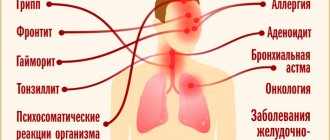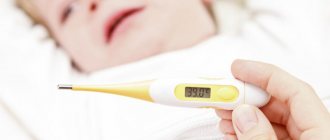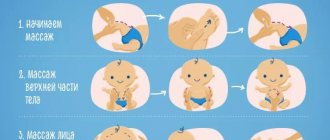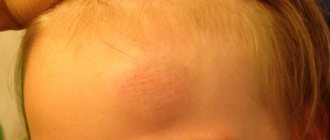What is a physiological runny nose?
After birth, the baby finds itself in a new habitat, and its mucous membrane begins to adapt, testing its capabilities. The body, as it were, tests how it can use the nasal passages, doing it first in dry “mode” and then in wet mode.
It is precisely in the second phase that abundant secretion of transparent mucus is observed. From the outside, it seems to my mother that she has a runny nose, but not thick, but like water. Of course, in such a situation the child often sneezes, and this can last up to 2 months.
At this moment, it is important not to make a mistake and not start treating the baby with all kinds of vasoconstrictor drops. Unlike a runny nose caused by foreign agents, a physiological one does not interfere with the child’s life and does not cause much discomfort.
Is it dangerous that I constantly sneeze during pregnancy?
A single “sneeze” does not pose any threat, except perhaps to others if its cause is a cold. If sneezing becomes an annoying companion during several days or even weeks of pregnancy, you should be wary. The fact is that during the act of sneezing, not only the muscles of the larynx tense, but also the diaphragmatic, intercostal and abdominal muscles, which in turn entails an increase in intra-abdominal pressure. In this case, there is a risk of increasing the tone of the uterus, which in turn can lead to its contraction and the threat of termination of pregnancy.
IMPORTANT!
If the expectant mother complains of a headache, swelling of the feet and legs against the background of frequent sneezing and nasal congestion, the first thing to exclude is the development of preeclampsia - a pregnancy complication in which there is an increase in blood pressure, the presence of protein in a general urine test, and requires immediate hospitalization .
Sneezing as a protection - from what?
The most common reasons why a newborn sneezes are associated with the body's protective reaction to various irritants. This is not a disease yet, but if no action is taken, the problem may worsen. Therefore, it is worth analyzing the situation and understanding what provokes sneezing. Here are some possible factors.
Low humidity in the room
Dry air almost always causes problems with a baby's nose. The situation especially requires attention when central heating is turned on in apartments and houses.
A household humidifier solves the problem of dry air most effectively
Solution: learn to humidify the room, aiming for the humidity in the room to be at least 50%. Special air humidifiers cope best with this problem. If it is not possible to purchase such a device, regularly carry out wet cleaning, hang wet towels on the radiator, start an aquarium with fish, or buy a decorative fountain.
Contact with an allergen
We recommend reading:Runny nose in an infant
Allergic rhinitis is just a boom of the current generation. A one-month-old baby may sneeze frequently due to inhaled dust, pet hair, and plant pollen. And if we can’t really influence seasonal hay fever, then we can completely influence other irritants.
Solution: fight dust. Constant wet cleaning and ventilation are true helpers in this matter. There should be no places in the children's room where it could accumulate: carpets, large soft toys, open bookshelves with old books. If you cannot live without a heirloom carpet, it is advisable to vacuum it every day. If it is noticed that sneezing worsens in the presence of a pet, your beloved cat will have to find another place to live. So to speak, leave it in good hands. It's a shame, of course, but the baby's health is more important.
Other irritants
Other substances, such as tobacco smoke, can also irritate the mucous membrane of the small nose, especially if one of the relatives living with you is used to smoking right in the apartment. Mom’s favorite perfume can also have a negative impact.
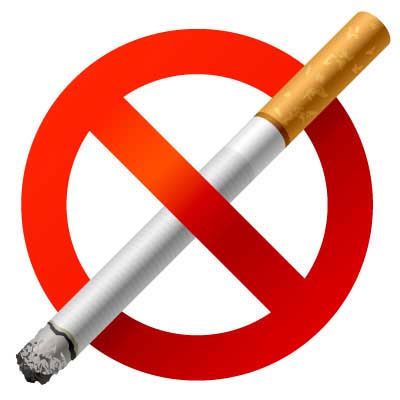
Smoking is prohibited in the presence of children
The child is a week old and has a fever and is sneezing.
When an irritant enters the nasal passages, the body tries to push it out with the help of a sharp muscle contraction, from which the air flies out and takes with it snot, saliva and the “uninvited guests” lurking in them. An interesting fact is that liquid discharge when sneezing can fly up to a distance of 5 meters, and its initial speed is up to 160 km/h.
Interesting fact . No wonder they teach you to cover your mouth and nose when sneezing. As scientists have found, at this moment 40,000 droplets of mucus burst out of the body. You can get up to 1 glass per day.
There may be several reasons why a child sneezes
- The manifestation of an allergic reaction to a familiar or new allergen: pollen, odors, pets, dust, tobacco smoke, household chemicals, etc.
If a child sneezes in the morning, and there are no other signs of illness, then most likely the cause of this disorder is an allergic reaction of the child’s body, for example, to a wool blanket or feather pillow or other bedroom items (the paintwork of new children’s furniture, a new carpet, etc.). d.). Also, allergies and, as a result, sneezing can occur to animal fur and feathers, household chemicals, and intense odors.
- The child's body is extremely sensitive to dust. Small particles can easily penetrate the mucous membranes of the respiratory tract, causing irritation. As a result, the child constantly sneezes, rhinitis may occur, as well as more severe disorders, up to the development of such an extremely dangerous condition as bronchial asthma.
To prevent serious consequences in the children's room, it is necessary to systematically perform wet cleaning and maintain optimal air humidity. In addition, from the room in which the child spends most of his time, you should remove objects that can accumulate large amounts of dust - carpets, soft toys, extra bedspreads and thick curtains.
- Hypothermia, especially in young children, which is usually accompanied by a severe runny nose, when snot runs like water.
- A respiratory infection that causes irritation and inflammation of the mucous membranes, fever, severe snot and other associated symptoms.
- Dry air in the room causes thickening of the clear mucus secreted by the nose, and when it comes into contact with it, particles of dust from the air stick and cause irritation and sneezing. If a child sneezes more often in his sleep at night, most likely he is reacting this way to the air in the room being too dry.
How to moisten your nose
For preventive purposes, a newborn child should be instilled in the nose with saline solution or saline water such as AquaMaris for a newborn every morning and evening. This frees the nose from dried crusts, and it becomes easier for the baby to breathe.
First, drop 2-3 drops of the solution, leave for 1 minute, then use moistened cotton wool to clear the nose of accumulated mucus. Over time, children become so accustomed to this procedure that when they grow up, there are no problems with instillation during illness. Even if the child is sick, moisturizing the nose is very important. This way germs are washed out faster and more efficiently.
So, we found out that in most cases there is no need to be afraid of infants sneezing; sometimes it gives reason to think and improve the conditions in which the baby is. And in some situations, you cannot do without the help of a doctor if there are accompanying signs indicating illness.
Why does my baby hiccup frequently?
If your baby hiccups often, there is nothing to worry about. This sound can occur for several reasons. During the newborn period, children's digestive system is still poorly developed. The baby often spits up after feedings. Residues of food fall, in turn, onto the diaphragm. It begins to contract involuntarily, causing peculiar sounds. This is why a baby hiccups after feeding.
A baby may develop hiccups due to hypothermia. Be aware of the instability of children's thermoregulation. If you undress the baby, he may simply freeze. Whereas an adult will be comfortable at this temperature. Hypothermia is always indicated by the tip of the nose. He becomes icy and slightly red.
To get rid of hiccups, follow the steps described:
Often, a baby’s hiccups go away on their own within a few minutes. Therefore, you should not worry about its appearance.
Sometimes mothers complain that the newborn is straining and groaning. Most likely, this is caused by problems with the gastrointestinal tract. Infants experience colic in 90 percent of cases. There's nothing wrong with that. However, this symptom causes them considerable discomfort and pain. It is problems with the tummy that explain most of the crying in babies of the first year of life.
Many parents are concerned that their newborn sneezes frequently. This can also happen for a number of reasons. Most often the symptom appears in children in the first months of life and is physiological. You remember that in the womb the baby is immersed in water. Amniotic fluid is also present in the respiratory system. After birth, the baby's lungs open and he begins to breathe. In this case, the remaining mucus turns into crusts. This is why a newborn grunts. The baby tries to get rid of dried scales by sneezing. You can help him with this.
1 Twist a small tube from sterile cotton wool.
2 Soak the resulting tube in baby oil.
3 Gently clean your baby's nose.
It is advisable to carry out such manipulations daily along with other manipulations for caring for a newborn.
A baby's sneezing can be one of the main signs of ARVI. It is worth remembering that the baby is born without its own immunity. If a mother adheres to natural feeding, then she passes on valuable antibodies to her child, which protect him during the first months. If a child has a cold, he needs the help of a specialist. Only a doctor can determine the nature of the disease and prescribe the right medications. Never self-medicate.
Allergies to animal hair, synthetics or household chemicals can manifest as sneezing. For proper treatment of the pathology, antihistamines are necessary. However, not all are suitable for a small child. If you are worried about sounds coming from the nursery, be sure to consult a doctor. Remember that nothing is more important than the health of your baby.
How to sneeze correctly during pregnancy?
Sneezing, first of all, involves clearing the nasal sinuses of dust, bacteria and viruses, so it would be fundamentally wrong to try to close your nose when an itchy feeling occurs.
To reduce all possible risks to the fetus, you should sneeze correctly. To do this, you need to use disposable napkins or handkerchiefs, after which it is advisable to close each nostril in turn. Thus, harmful bacteria will not enter the body, and the nasopharynx will be cleared of mucus.
To ease breathing and reduce the sneezing reflex, you should drink enough liquid, and also try to humidify the air in the room. Night rest involves sleeping with your head elevated, while the use of saline solutions will help clear the sinuses, breathing will become easier, which will help reduce the sneeze reflex.
Of course, compared to other problems of expectant mothers, for example, severe toxicosis or high blood pressure, the fact that I constantly sneeze during pregnancy may seem like a trifle, but it really tires me. I can sneeze five times a day and 3-4 times in a row, my family is already tired of saying “be healthy.” I don’t suffer from allergies, there’s no dust or fur in the house, why do I constantly sneeze during pregnancy? The search for answers led me to believe that I have rhinitis during pregnancy, but it will definitely be clear after visiting an ENT doctor. This is what I found while searching for information.
What to do if your baby is constantly sneezing
If your baby is constantly sneezing, you need to show him to a pediatrician to find out the cause. After diagnosis, if necessary, appropriate treatment will be prescribed.
If the newborn has not been in contact with a sick person, the body temperature is normal, he has eaten well, and sneezing began after eating, then regurgitation is the main reason for his sneezing. If you experience frequent, intense regurgitation, you should consult your pediatrician or health visitor.
If after a walk in the cold season a newborn has a runny nose, most likely he has a cold. Fever, runny nose and watery eyes are additional symptoms of the onset of the disease. In this case, it is necessary to provide the child with plenty of fluids and contact the pediatrician as soon as possible.
Warm, dry air in the room can also cause a newborn to sneeze. To create optimal conditions you should:
- ventilate the room;
- do wet cleaning;
- remove soft toys from the room;
- Install an additional humidifier in the room.
With the birth of their first child, parents experience incomparable feelings and emotions. Mutual love and intimacy becomes stronger every day. But the joy of the first days can be overshadowed by the baby’s strange behavior, for example, frequent sneezing, groaning or coughing. Without knowing the true reason, adults begin to sound the alarm and contact a pediatrician. So let's look at why a newborn sneezes, is it normal, and how can we help him?
What does a child feel in the womb when the mother cries, can the fetus experience pain?
Pregnant women should not worry - every woman knows this. However, due to hormonal changes and circumstances beyond the control of the expectant mother, she may worry, cry and be in a state of stress. Can the fetus feel the mother's worries or physical pain? Will a woman’s unstable emotional state affect the baby’s development in the womb or his future life?
Does the mother's condition affect the child?
The baby developing in the belly is influenced by every word, emotion or movement of the mother.
American scientists have proven that from the age of 3 months he hears sounds and feels touches, calms down when the woman is calm and begins to actively move when she is upset, aggressive or doing gymnastics.
That is why pregnant women are advised to closely monitor their psychological and physical condition in the 1st and 3rd trimesters.
The baby projects everything onto himself: the mother’s negative emotions, thoughts, positive moments.
Scientists explain this by the fact that in a woman’s body, with different emotional states, certain hormones are secreted, which are transmitted to the child.
For example, when a mother is happy, endorphins are released into the blood, which enter the child’s body and improve mood. Expectant mothers should have no doubt - the baby feels the same as they do.
How does a child feel when mom cries?
You can “upset” a child even in the womb. He begins to understand what is happening from 3-4 months of gestation, and from 29 weeks the baby has already developed all the senses. The child copies the actions of the mother, so the woman must control her emotional state.
When a woman cries, her body produces cortisol, a stress hormone, which is transmitted through the bloodstream to the baby, so he becomes sad along with her. The child reacts very sharply to the mother’s mood swings, but some circumstances do not depend on the pregnant woman - a woman can get upset and cry because of some little thing under the influence of changing hormonal levels.
Can a fetus feel touch and pain?
The fetal nervous system develops very quickly - by the 7th week it has receptors around the mouth, by 12 - all over the face, feet and palms, and by 28-30 the nerve endings are fully mature and the receptors cover the entire body.
The baby, who develops in the womb for only 2 months, develops a reaction to irritants, so he is able to feel pain. From 15–20 weeks, the baby already feels touches on the belly of his mother or father.
The gradually developing sense of touch allows him to feel pressure from the outside with the entire surface of the body at the moments of its contact with the walls of the uterus.
Touching the fetus's body causes a reaction - it responds to the parents' gestures with pushes. That is why it is important to stroke your belly, showing affection and care for your baby. The sensations of a child developing in the womb become more orderly and “understandable” to him during the 2nd trimester. This is confirmed by children who were born prematurely - they respond well to tactile contact.
The child feels pain and reacts to physical injuries starting from the 2nd month of development. A blow to the mother's stomach frightens the baby, he tries to shrink and hide, moving as far away from the threat as possible.
Consequences of a mother’s poor emotional state for a child
When a woman experiences negative emotions, her hormonal levels react to this. Increased secretion of certain hormones negatively affects the development of the baby.
A child in the womb accumulates these substances in the amniotic fluid, which he regularly swallows - this is how he receives a high dose of hormones secreted by the mother's body. This can lead to unpredictable consequences:
- pathologies of the cardiovascular system;
- hypoxia due to vasoconstriction due to stress;
- irritability, moodiness;
- sleep disorders;
- dizziness;
- hyperactivity and problems with the nervous system;
- increased sensitivity to noise and odors;
- developmental delay;
- autism;
- asthma, especially pronounced in the first years of a child’s life.
Scientists believe that changes in the mother’s mood affect the child’s behavior and character. By 30 weeks he is already able to hear voices, so parental quarrels can also negatively affect his condition.
How to set yourself up in a positive way?
Feelings of peace and tranquility during pregnancy are difficult to achieve - women experience mood swings almost every day. The expectant mother must learn to deal with emotional stress:
- provide a favorable environment for relaxation;
- listen to calm music, stop watching thrillers and horror films;
- take soothing teas;
- for a short period of time, you can take warm baths or go to the pool;
- come to terms with childbirth and hope for its safe and quick end;
- communicate more often with loved ones;
- perceive what is happening around you with humor;
- regularly take walks in the fresh air;
- try not to believe in superstitions (prohibition of cutting hair, knitting during pregnancy, etc.);
- You should not look for information about negative childbirth experiences.
Source: https://www.OldLekar.ru/beremennost/plod/chto-chuvstvuet-rebenok-v-utrobe-materi.html
Why do you sneeze often during pregnancy?
Frequent sneezing during pregnancy is mainly due to the same reasons as before conception:
- the presence of foreign objects in the nasopharynx;
- allergic reaction as a result of exposure to the mucous membrane;
- the formation of rhinitis or colds;
- entry of the virus into the body;
- taking medications that affect the nasal mucosa.
Sneezing in the early stages often occurs due to the presence of an irritating factor or due to the influence of infection.
Therefore, in the first weeks of pregnancy, you should pay close attention to constant sneezing and consult a doctor about the development of any serious disease. The 1st trimester is characterized by the formation of all organs in the embryo, and sneezing and subsequent runny nose causes a swollen reaction in the nasopharynx, which affects the woman’s well-being and poses a threat to the normal development of the child. Due to nasal congestion, the expectant mother is unable to breathe properly, less oxygen is supplied, and the fetus feels hypoxia, which requires immediate treatment.
The 2nd trimester is associated with the active growth of the baby, and insufficient breathing of the mother, as a result of sneezing and a runny nose, provokes the risk of giving birth to a child with allergies or impaired smell function.
When answering the question: why do you often sneeze during pregnancy, you should focus on the well-being of the pregnant woman and the gestation period. So, in the third trimester, the appearance of short-term sneezing is considered normal and is explained by a surge of hormones, as well as a significant increase in the uterine cavity.
